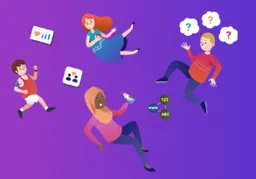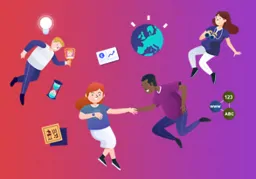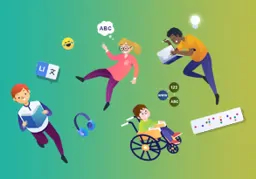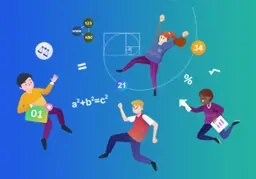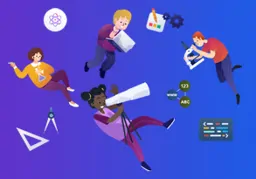AREA OF LEARNING AND EXPERIENCEExpressive Arts
Guidance to help schools and settings develop their own curriculum, enabling learners to develop towards the four purposes.
3. Principles of progression
Mandatory
Increasing effectiveness as a learner
Progression is demonstrated in moving from doing something with support towards autonomy and sophistication. Progression is likely to grow out of gradual use and re-use of known skills, but could also, on occasion, present as a big qualitative jump.
As learners make progress they increasingly evaluate and create more and more sophisticated creative work independently and with increased collaboration with others. They gain greater confidence by being able to explore, experience, interpret, create and respond through the expressive arts’ disciplines within a safe environment. Their evaluation of their own and others' work reflects a developing understanding of process as well as product, and resilience in receiving, and persistence in acting upon feedback.
Increasing breadth and depth of knowledge
Learners demonstrate progression in the Expressive Arts Area of Learning and Experience (Area) by exploring, experiencing and creating increasingly complex meaning. Linking new learning to existing knowledge develops an increased sophistication of conceptual understanding. Moreover, learners learn and refine different types of knowledge and skills including the techniques, processes and skills required to create and interpret in each field of the arts. Additionally the integral skills of creativity; synthesis; critical thinking; and understanding of social and cultural contexts are crucial to this Area.
Deepening understanding of the ideas and disciplines within areas of learning and experience
Progression is demonstrated through the continuing development of the knowledge, skills and capacities required to appreciate, create, explore, respond and reflect both within specific disciplines and in combinations of disciplines. In the early stages, learning is characterised by a growing curiosity for being creative and innovative by exploring with a range of resources and materials in various domains. Combining disciplines occurs purposefully but remains organic. As learning progresses, learners become increasingly aware of the expressive arts’ disciplines and their key features, including (though not necessarily limited to) art, dance, drama, film and digital media, and music. Learners make links in the creative process across the disciplines to explore, create, interpret and respond.
Refinement and growing sophistication in the use and application of skills
Levels of control, accuracy and fluency in using a range of arts' skills will grow as learners progress. For example, in early stage learning this might be characterised by using simple body movements in composing a dance and identifying fundamental aspects such as speed, direction and levels when evaluating one’s own work and the work of others. At a more advanced stage of progress, learners might create and evaluate the success of interaction among various aspects of movement in a complex choreographed dance. As they progress, learners continually develop in depth and refine with a growing sophistication these key arts' skills in different disciplines and/or in interdisciplinary activity.
Making connections and transferring learning into new contexts
Learners increasingly appreciate the possibility of combining disciplines within the Area in order to appreciate and to achieve/produce creative outcomes. Progression is also characterised by more sophisticated use of relevant skills within individual disciplines and the growing ability to transfer existing skills and knowledge into new contexts within this Area and across other Areas.



